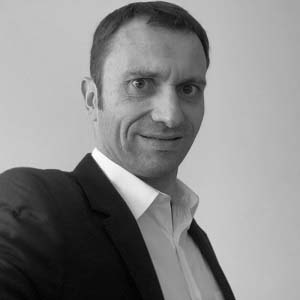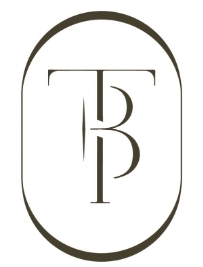 |
INTERVIEW - DAVID SIERRA, DEPUTY MANAGING DIRECTOR OF TERROU-BI, DAKAR: "THE LUXURY HOTEL INDUSTRY OFFERS A BLANK PAGE EVERY MORNING AND ALLOWS YOU TO EXPRESS YOUR CREATIVITY." (Senegal)
At the helm of the Terrou-Bi resort for almost four years, David Sierra has brilliantly guided the Senegalese property, now considered a benchmark in West Africa, through its various transformations. |
Category: Africa Indian Ocean - Senegal - Industry economy
- Interviews and portraits
- Renovation / Addition - Sustainability - Interviews - Industry leaders
Interview made by Guillaume Chollier on Friday 17 October 2025
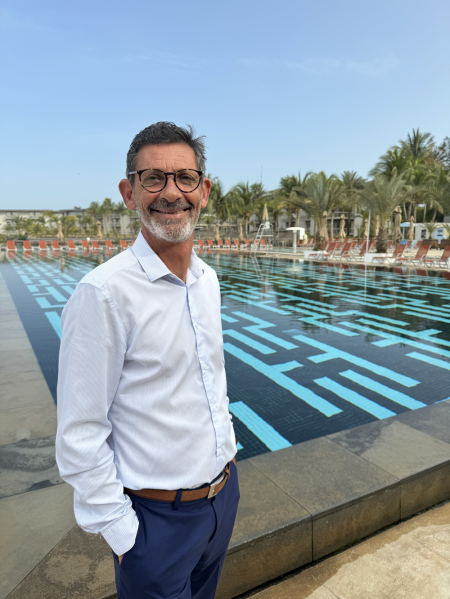 David Sierra has been managing the Terrou-Bi hotel for four years.
Photo credit © Terrou-Bi
‘It wasn't the most prestigious, but it was next to La Baule and when we graduated from this school, we were easily hired by the Lucien Barrière group, which had three properties in La Baule: the Hermitage, the Royal and the Castel Marie-Louise,’ confesses the man who now holds the position of deputy general manager of the Terrou-Bi resort.
After seven seasons in Courchevel and Saint-Tropez for the Alp'Azur group, David Sierra joined the Lucien Barrière group at L'Hermitage and progressed within the group: La Baule, Deauville, Enghien-les-Bains. He then had his first experience abroad, in Marrakech, before joining the Singaporean group The Residence, which has properties in Tunis, Mauritius, Zanzibar, the Maldives and Bintan, a small Indonesian island. Seven years later, he joined the B-Signature group and opened the Manapany in Saint-Barthélemy. ‘An interesting group, a pioneer in environmental matters in its management of black water and renewable energies, in particular,’ explains David Sierra.
Unfortunately, Hurricane Irma brought the experience to a premature end. Back in Paris, he joined the Barnes group in Paris for two and a half years to open the hotel branch, but Covid interrupted the collaboration. It was then that he was contacted for a four-month assignment at Terrou-Bi in January 2022. Seduced by the project, the involvement and vision of the shareholders, he has never left since. In Dakar, the Journal des Palaces met with a hospitality enthusiast, for whom luxury hotels are synonymous with passion and the constant pursuit of customer satisfaction.
Journal des Palaces: How did you discover your passion for luxury hospitality?
David Sierra: I was lucky enough to start out in this very high-end sector. Luxury hospitality offers a blank page every morning and allows you to express your creativity. It's not about reading or applying a bible. My clients' requests are often more emotional than simply a pragmatic purchasing need. For example, I can offer them a locally made jam, ensuring that the producer is properly remunerated. I want to be in a win-win relationship.
How would you define luxury hospitality?
Luxury hospitality emphasises human relationships, attention to detail and constant evolution. To achieve this, we need to follow sales networks, online travel agencies and private concierge services in order to keep abreast of customer consumption patterns, which are changing dramatically. These customers have a wealth of references because they come from Asia, the United States, Japan and elsewhere. For me, luxury hospitality is about touching the hearts of your customers and conveying emotion, the ‘wow’ effect, while cultivating discretion and avoiding ostentation. It knows how to adapt to the place where it is located. We are Terrou-Bi, we are Senegalese, let's be proud of it and proclaim it loud and clear.
What objectives were set for you when you arrived at Terrou-Bi?
The objective is very simple: to position Terrou-Bi as a benchmark resort in the high-end hotel industry on the African continent.
What nationalities stay here?
The French, of course, as we have always had close ties, whether through the Paris-Dakar or La Baule-Dakar rallies; there is a long history. Initially, the leisure relationship with France was more focused on Saly, while Dakar was more of a business destination, with many French companies present.
There are also many visitors from Côte d'Ivoire and Benin because many companies from these countries are also based here and the economic ties between these countries are strong. Then there are the United States, obviously with the idea of returning to their roots, searching for their origins, symbolised by the island of Gorée. Spanish and Italian nationals also visit us, as they are quite close to Senegal.
Is Terrou-Bi primarily a business resort?
Indeed, 80% of the resort's clientele is business clients through the corporate, seminar and incentive market. This is because the offering is relatively limited in Dakar, and the government wants the city of Diamniadio to become Senegal's economic hub.
It therefore wants to restore Dakar's tourist appeal, as it was when there was a Club Med in Almadies. We believe we can increase the proportion of tourist guests to 35%.
Terrou-Bi is building an extension with around 100 rooms to address the shortage of rooms in the luxury hotel sector. Has demand exploded in recent years?
It did indeed explode when I arrived. Then the elections and the change of government created uncertainty. But in 2022, we had a 92% occupancy rate, which is huge. Some rooms have never been vacant. We had a plot of land, which was a car park, and we were advised to make the most of every square metre. However, the problem with our property is that it mixes individual and business customers in the same place. Building around 100 new rooms allows us to mitigate this problem by accommodating them in two different properties, but under the same commercial entity.
As for MICE, which currently accounts for 50% of our business, the margin for growth will come more from the evolution of the average price than from the share it represents. With the work currently underway, we will be able to offer a unique package with this unit equipped with meeting rooms, breakout rooms, an amphitheatre, a reception hall, etc. All of this will be dedicated to business customers. It is unique in Senegal and extremely rare in West Africa.
So for us, the goal will be to grow our individual customer base. To this end, in parallel with the new unit, we have begun renovations on the ‘historic’ building. The Diamono bar was the first step, followed by the lobby. Finally, when the new wing is completed, we will begin renovating the rooms. To this end, we have come up with a new chic and elegant design. This is a real risk for this family-owned group, as it represents an investment of €30 million, financed from our own funds. But we have an advantage: we are a close-knit team, with a shareholder who knows the sector inside out, who is always present, who is involved on a daily basis and who is a good listener. We also share the same vision, even if we don't have the same background. As a result, we are able to take decisions very quickly, which allows us to react quickly if we are heading in the wrong direction.
To attract this individual clientele, Terrou-Bi stands out by offering big game fishing. Is it important to differentiate yourself in this way?
It is indeed micro-markets that ultimately make up a market. Big game fishing, which we offer on board our dedicated, high-tech boats, departing from our own marina, is one such market. The waters are rich in fish, particularly bluefin tuna, which can weigh up to 350 or 400 kilos, and marlin. We have a large clientele from the United States, Russia, France and Italy who come for big game fishing. We have another micro-market: surfing. We are located in a spot where it is possible to surf all year round, as we are at the tip of a headland and, with winds from the east, west, north or south, there are always waves. As a result, there are many schools located nearby. Finally, there is African art through music, fashion, painting...
How does the Terrou-Bi resort differ from a European luxury hotel?
We are not in Paris, London or Tokyo, we are in Dakar. But that does not mean that the service at our five-star resort is any less good than in those capitals. Our staff, who receive the best training, form a very strong bond with our guests, which we call Téranga here. This encompasses forceful values of hospitality and sharing, which touch our visitors.
Terrou-Bi is located in an exceptional setting. What is your policy for preserving it?
For almost two years now, we have been developing a comprehensive CSR policy. Today, we are looking at what we can do in terms of renewable energy, particularly solar and wind power. This is not always an obvious approach in Africa, where we do not necessarily have access to all the solutions.
The second aspect concerns selective sorting. As far as possible, we favour zero plastic. To achieve this, we work closely with our suppliers. We have certifications for food hygiene and IT security.
In terms of social issues, numerous measures are implemented at Terrou-Bi. All our employees are paid above the local minimum wage, and we all have supplementary health insurance, which is rare here. We have implemented what we call a social assistance policy, which represents more than 170 million CFA francs per year, or around 250,000 euros. Every year, we hire 40 apprentices who spend two years with us training. 80% of them are recruited at the end of their training. In the same vein, since February we have been training the 90 Senegalese managers who work at Terrou-Bi to become leaders. This represents an investment of €790,000 over two and a half years.
To transport our employees to the resort and back home, we have set up a network of 19 bus routes serving Dakar and its surroundings, as far as Diamiadio, 33 kilometres away. We have created a botanical garden where we welcome schools to explain how it works. These are just a few examples from a long list we have compiled.
What advice would you give to a young person who wants to pursue a career in luxury hospitality?
First, they need to be sure that it's their passion. Next, they need to like people; natural empathy is essential, both towards their colleagues and their customers. It's necessary to sense people's needs before they are expressed. Finally, they should not hesitate to rely on references. In every strategy I have had to implement within my teams, I have often relied on analyses that had been carried out or on the opinions of some of my peers.
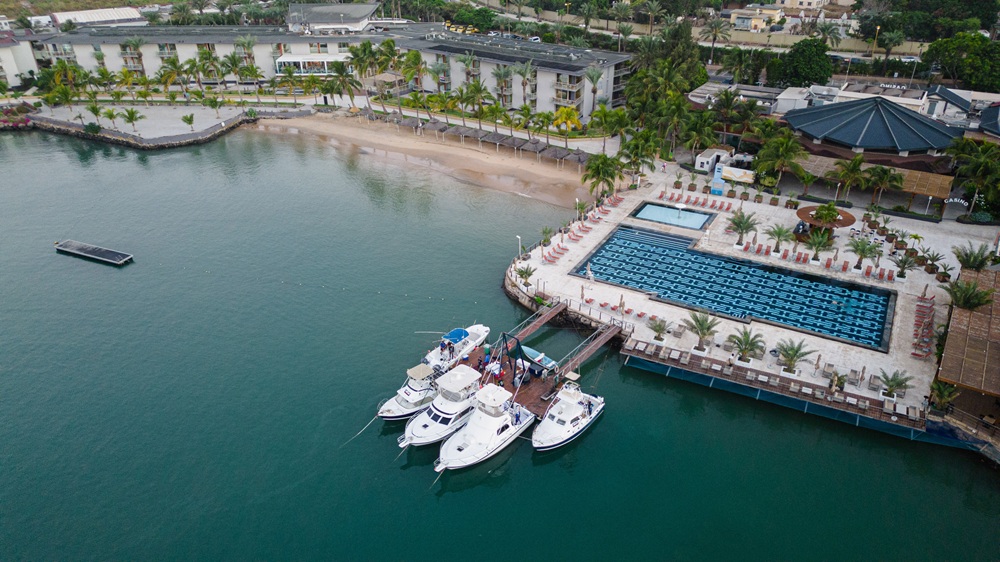 Terrou-Bi is located on the corniche of Dakar, facing the sea.
Photo credit © Terrou-Bi
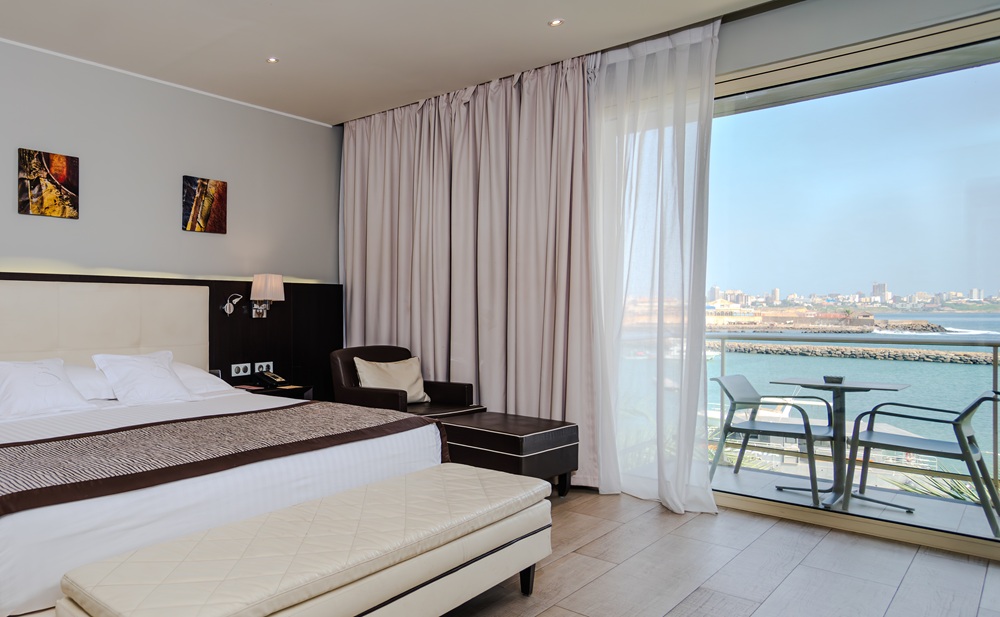 The rooms, ranging from 32 to 121 square metres in size, are modern and comfortable. Some offer a very pleasant sea view.
Photo credit © Terrou-Bi
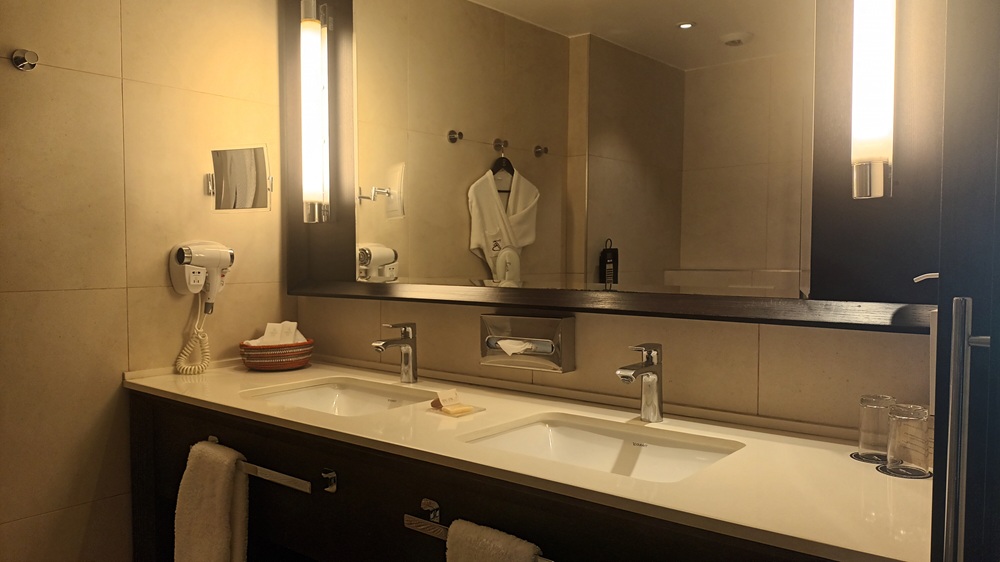 With double sinks, marble countertops and walk-in showers, the bathrooms in the Prestige rooms are finished with high-quality materials at Terrou-Bi.
Photo credit © Guillaume Chollier / Journal des Palaces
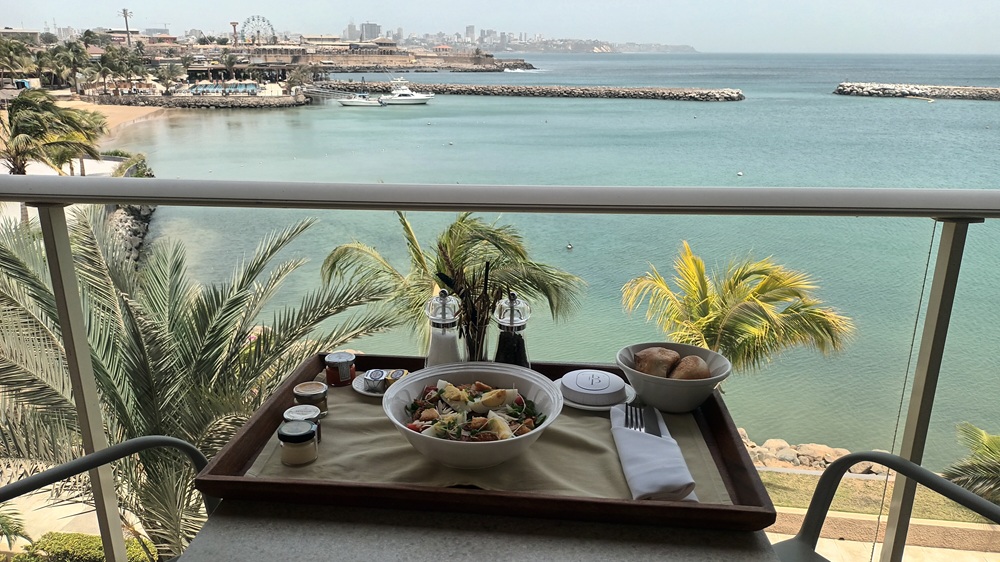 Opening onto a pleasant balcony, Terrou-Bi's Prestige rooms offer a unique view of the hotel's marina.
Photo credit © Guillaume Chollier / Journal des Palaces
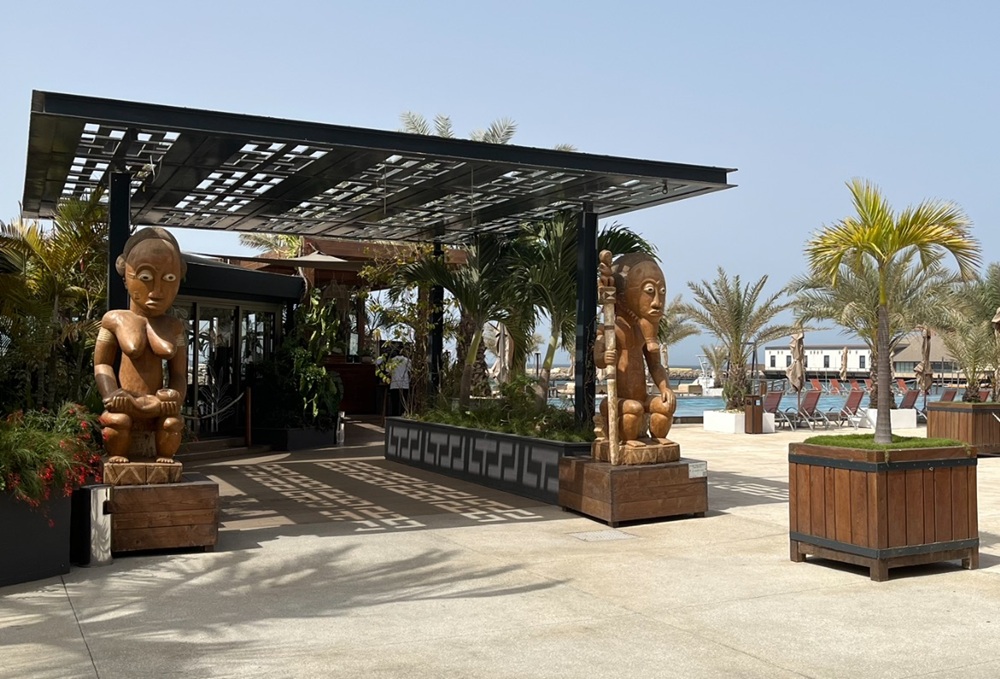 Thanks to its local specialities and refined menu, La Terrasse has established itself as a must-visit restaurant in Dakar.
Photo credit © Guillaume Chollier / Journal des Palaces
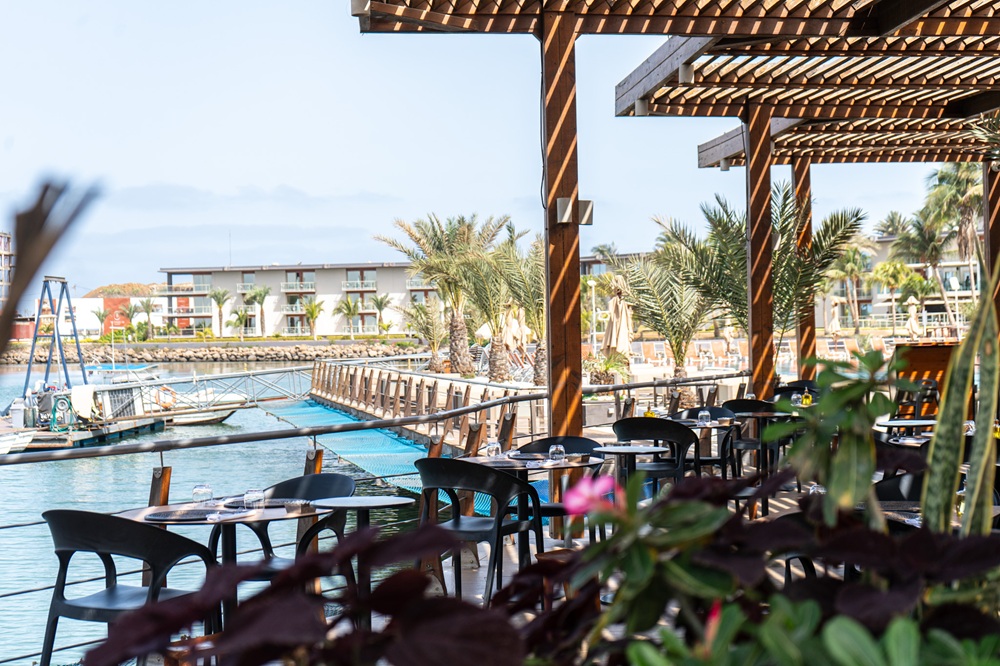 With its waterfront location, La Terrasse offers its visitors a unique spot in the Senegalese capital.
Photo credit © Terrou-Bi
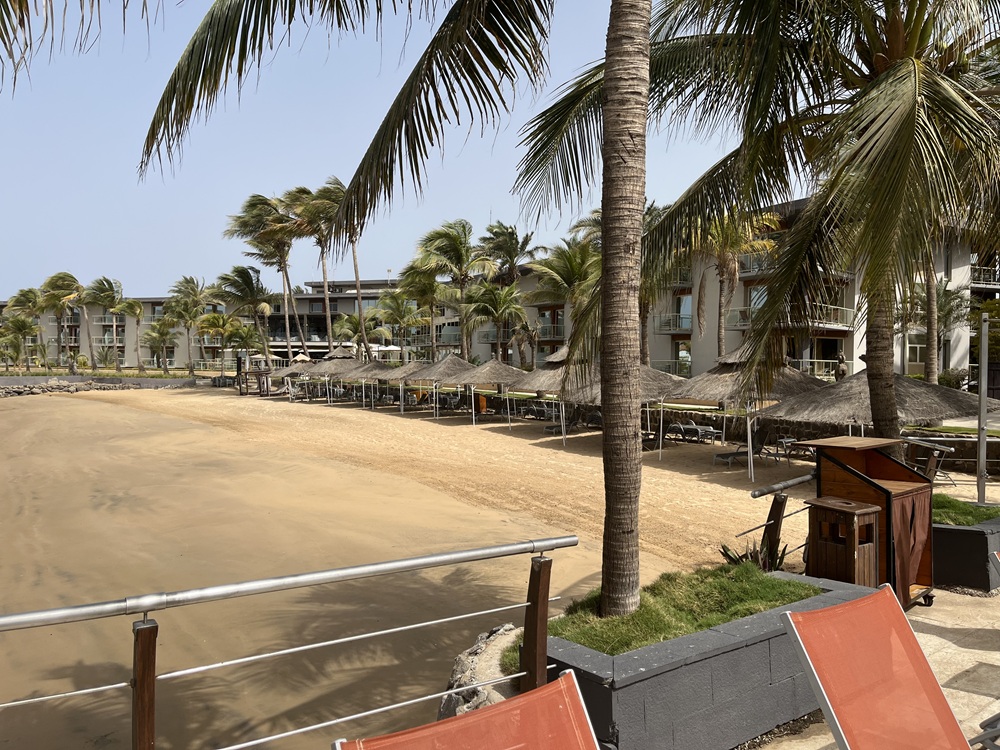 With its swimming pool and private beach, Terrou-Bi appeals to tourists and business guests alike.
Photo credit © Guillaume Chollier / Journal des Palaces
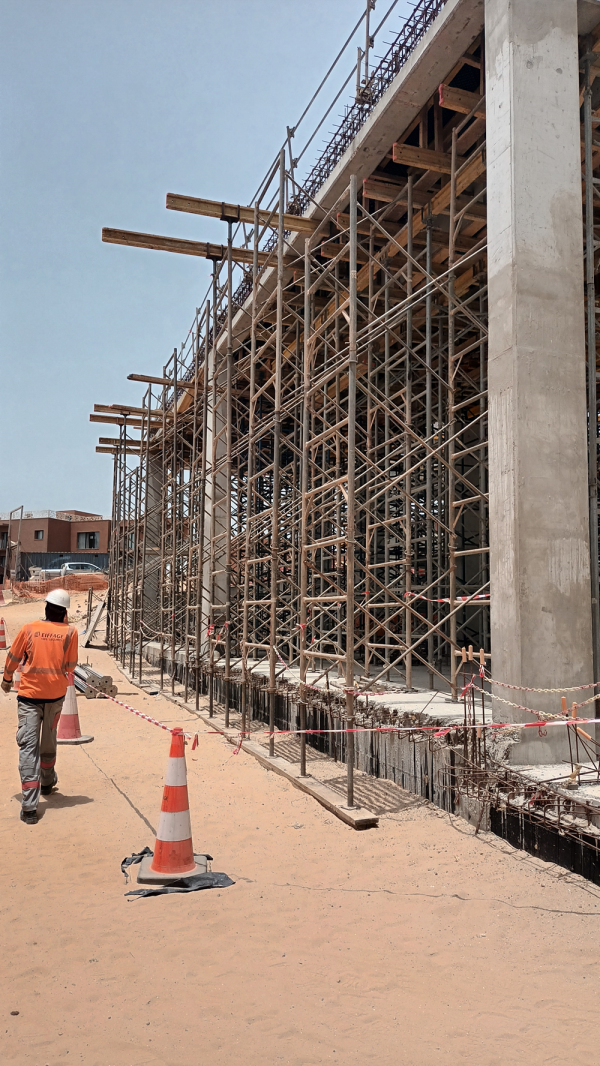 With a view to the 2026 Youth Olympic Games, a new wing with 100 new rooms has been built at Terrou-Bi.
Photo credit © Guillaume Chollier / Journal des Palaces
|
|







